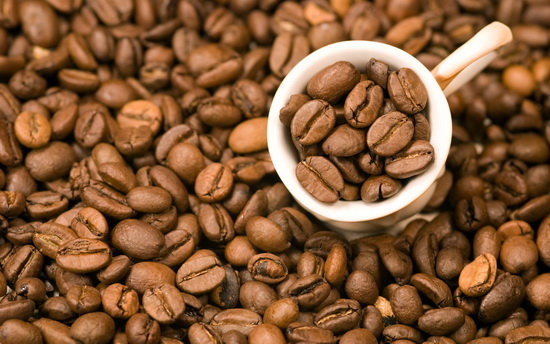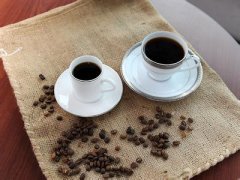80% of the taste of roasted coffee is determined by the roasting company.
Baking, as the name implies, is to provide heat to coffee beans, and to produce chemical changes in the internal structure of coffee beans by heating, that is, heating converts starch in raw beans into sugar 5 or acidic substances at high temperature. substances such as cellulose will be carbonized to varying degrees by carbon, water and carbon dioxide will be evaporated, proteins will be converted into enzymes, and the remaining substances of fat will be combined. An oil film is formed on the surface of coffee beans.

The main purpose of baking is to produce this aromatic oil, which is called coffee oil, or, more accurately, coffee oil, which gives coffee beans a strong aroma. This aromatic oil is volatile, that is, it is the main factor that brings flavor and fragrance, and they can accommodate water, which means that people can enjoy it in a cup.
Baking must be uniform, the most important thing is to be able to stir-fry the beans evenly inside and outside. At first, the water in the coffee beans should be discharged smoothly by fire. if only fast and uneven is required, it may cause the beans to have a beautiful appearance but a light internal color, and has not yet begun to decompose. The deep, medium and shallow companionship of beans during baking is decided and controlled by people, and even there is a knack for cooling beans before the end of baking. If the temperature is not cooled quickly, the heat contained in beans will make the beans darker and greasy, and the taste will become bitter.
Baked coffee beans swell, a bit like popcorn, and crackle during baking, just as we make popcorn in a microwave oven. But because the skin on the surface of coffee beans is very tough, we usually don't see coffee beans crack like popcorn.
The color of roasted coffee beans changes from light green to tea brown, which can not only change the unique color of amber, flavor and aroma, but also volatilize the sour, sweet, bitter, mellow and fragrant five obvious taste characteristics of coffee. If the baking technology is good, the beans will be large and expanded, no wrinkles on the surface, uniform luster and each has its own different flavor.
Important Notice :
前街咖啡 FrontStreet Coffee has moved to new addredd:
FrontStreet Coffee Address: 315,Donghua East Road,GuangZhou
Tel:020 38364473
- Prev

A good cup of coffee mainly depends on the following three factors
The raw bean quality of coffee, the roasting quality of coffee and the brewing quality of coffee are three main factors. So if you want to drink a good cup of coffee, you can't just focus on how to brew the coffee, cook it for a few seconds, stir it a few times, and be able to master the raw bean characteristics of the coffee, the roasting quality / characteristics of the coffee, and the duration of the coffee after baking. Baking quality of coffee beans: a. Roaster performance: stable
- Next

Coffee bean roasting knowledge shallow baking of coffee beans
The baking of coffee beans can be divided into shallow baking according to the degree of baking. Moderate baking. There are three categories of deep baking. Generally speaking, the light baking color is lighter, the sour taste is strong, and it has a unique flavor. The deep baking color is darker, the deeper the sour taste is, and the more bitter it is, but the scorched smell of baking makes the aroma more intense. Shallow accompany, such as cinnamon baking, has a more meticulous and mild aroma.
Related
- Beginners will see the "Coffee pull flower" guide!
- What is the difference between ice blog purified milk and ordinary milk coffee?
- Why is the Philippines the largest producer of crops in Liberia?
- For coffee extraction, should the fine powder be retained?
- How does extracted espresso fill pressed powder? How much strength does it take to press the powder?
- How to make jasmine cold extract coffee? Is the jasmine + latte good?
- Will this little toy really make the coffee taste better? How does Lily Drip affect coffee extraction?
- Will the action of slapping the filter cup also affect coffee extraction?
- What's the difference between powder-to-water ratio and powder-to-liquid ratio?
- What is the Ethiopian local species? What does it have to do with Heirloom native species?

